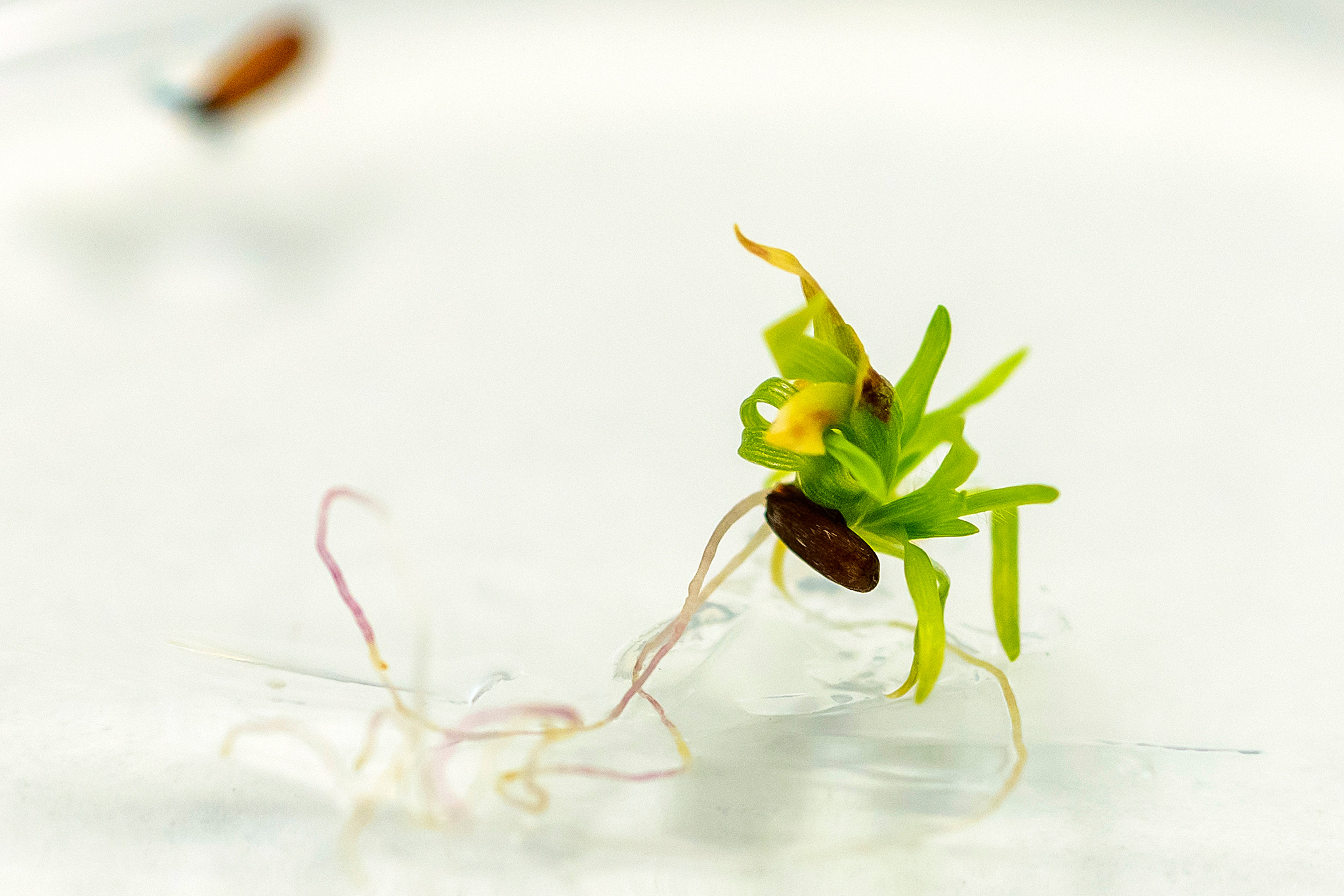The Cell & Molecular Biology and Trait Engineering cluster comprises a dynamic team of scientists, researchers, and technicians dedicated to advancing scientific knowledge and innovation in plant biology, genetics, and trait engineering. Our department focuses on the development of cutting-edge biotechnological tools and precision genetic innovations to enhance the breeding pipelines of ICRISAT's focus crops, addressing production constraints and global traits.
One of our key areas of expertise lies in the co-development of parental breeding lines through biotechnology, including genetic engineering and gene-editing approaches. Leveraging our deep understanding of fundamental plant biology, we uncover candidate genes and mechanisms responsible for crucial and game-changing traits.

These traits are identified based on the demand-driven target product profiles (TPPs) of ICRISAT's focus crops. By integrating advanced gene-editing and enabling technologies, we create precision genetic innovations that feed into the breeding pipelines in a stage-gate manner, ultimately improving elite varieties with enhanced traits.
Creating biotechnological tools for targeted breeding of future traits in grain legumes and dryland cereals.
Establishing enabling tools and platform technologies for precision genetic and genome engineering, allowing for the development of novel trait enhancement pipelines for our focus crops.
Developing and utilizing reverse and forward genetics tools for trait prospecting and discovery research, enabling the identification of novel traits for enhancement pipelines.
Integrating fundamental plant sciences with systems biology tools to uncover candidate genes and mechanisms responsible for complex traits and process regulation, guided by crop product profiles.
Functionally validating candidate genes emerging from trait discovery pipelines in biological systems, linking gene(s) to phenotype(s).
Addressing emerging ethical, legal, and societal issues related to agricultural biotechnology, including GMOs and gene-editing technologies, to ensure responsible and sustainable solutions for agriculture.
Our cluster is committed to pushing the boundaries of scientific innovation while considering regulatory environments, consumer acceptance, and broader societal impacts. We strive to create transformative solutions that improve the productivity and resilience of our focus crops while addressing the challenges of feeding a growing global population.